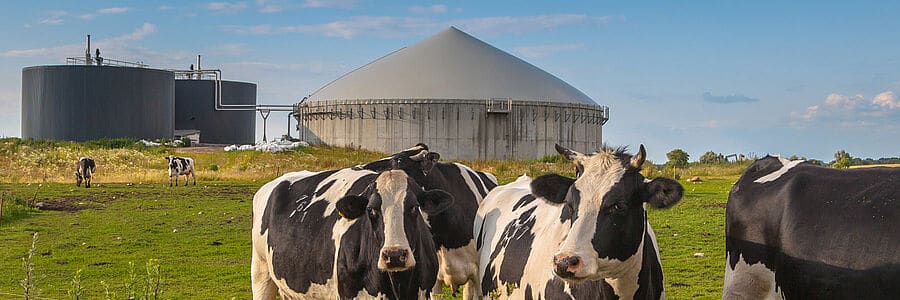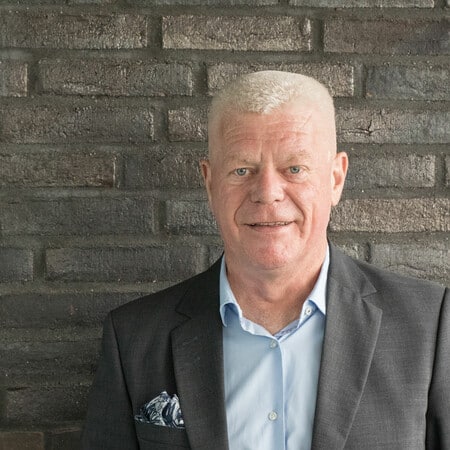To improve the water quality of the sea has been a continuous objective of Interreg Baltic Sea Region and its predecessor programmes. Many projects have received funding to reduce negative impacts of agriculture on the sea. The platform SuMaNu gathers and synthesises best practices and recommendations on nutrient management. We interviewed Henning Lyngsoe Foged from Aarhus, Denmark, who has been one of the driving forces to spread agri-environmental innovations across countries around the Baltic Sea.

©panthermedia/CreativeNature
As an expert in the agro-food sector, what is your mission?
Henning Foged: The red thread in my work is EU agro-food sector policies, not least the part dealing with environmental regulation, for example the management of manure and nutrients. And the main purpose of my work has been and is to improve resource economy to the benefit of farming business, while at the same time reducing negative impacts of farming on the water quality, on the air quality, on the environment and climate in general.
What has been your role in Interreg projects?
Henning Foged: In the Interreg projects, it has been my role to lead work packages concerning policies, investments and market analyses within the area of innovative agro-environmental technologies.
For example, in BalticCOMPASS, we had a large pot to invest into innovative technologies that reduce the loss of nutrients from the farms to the Baltic Sea. I had visited the Netherlands and the United States where I got a lot of ideas I fed into the project. In my work package, I helped implement investments into new technologies in Latvia, Belarus and Denmark. And we jointly identified the three best technologies to do so, namely; producing biogas from livestock manure and other wastes; separating slurry to enable a more balanced fertilisation with nitrogen and phosphorus on the fields; and SCIEN drainage, which is a specific approach to draining fields in smart ways without losing the nutrients.
Now, working in the SuMaNu platform, it is my task to identify the mechanisms that make Interreg projects succeed or not in terms of delivering results that are implemented in policies and taken up by end-users.
What has been the positive impact of these Interreg projects over the years on the Baltic Sea?
Henning Foged: Well, there are no quick effects when you are talking about changes of the environment. You can spoil the ground water within five minutes by handling pesticides incorrectly – but it takes 100 years for the water to fully recover.
Interreg projects are very important, but they cannot be directly connected to the overall development in a large territory like the Baltic Sea. Interreg projects are important for supporting political decisions that can have a positive impact. They can help with information spreading, demonstrations, or trainings. Interreg projects can help to push things into the right direction – but a project cannot do it alone.
What are your findings in SuMaNu: What makes an agri-environmental cooperation project succeed or not succeed?
Henning Foged: In SuMaNu, we analysed seven EU funded projects, namely Manure Standards and Baltic Slurry Acidification funded by Interreg Baltic Sea Region, GreenAgri from Interreg Central Baltic and the BONUS Programme’s PROMISE project. Also results from the previous Interreg projects Baltic COMPASS, Baltic DEAL and Baltic MANURE are utilized. And we already found some clear results.
We found that the project objectives were not always formulated clearly. From our perspective, it would be best to request applicants to use the S.M.A.R.T. approach. This way, project leaders would have to express concretely, what exactly they want to achieve, and it would be easier to check if they did.
Another finding is about the importance of involving stakeholders along the solution you are working with. If a project stays at distance from policy, administration and end-users and produces only scientific results, the project does not achieve anything, and nobody knows about the results.
What is your vision of Interreg beyond 2020?
Henning Foged: I think the Interreg concept should continue, in particular the clear links to specific policies such as the EUSBSR should be maintained. But from the practical point of view, I would like to see a funding scheme that has more favourable financing conditions, a much lighter administration and a higher standing among administration.
I have observed many times that the co-financing rates and the requirement for pre-funding by partners hinders organisations to participate in an Interreg project, and often these would be important partners for us. The Programme Manual is far too big, and bi-annual first level controls are an overkill. That’s why far too much money goes to auditing companies and not to solving the actual challenges. Also, I always get very detailed questions on financial reports but hardly any questions on the activity report. There should be a better balance.
When it comes to public authorities, we would really like to involve more partners from administration, but it seems that it’s hard for them to prioritise Interreg projects. Most authorities have a minimum of human resources and no obligation to work internationally. It would be helpful if more people in administration knew about the benefits of Interreg projects.
What do you personally like about working in transnational Interreg projects?
Henning Foged: Interreg gives me opportunities to work internationally. To me it is a privilege to travel, to meet other people and to get to know other cultures. By this you better understand others’ perspectives, but also your own situation and your own country and you learn to look at things from different sides.
 About:
About:
Henning Lyngsoe Foged is an expert in the agro-food sector with more than 35 years of experience. He is the director of the Organe Institute ApS, based in Aarhus, Denmark. Henning has worked consecutively in Interreg Baltic Sea Region projects since 2009, namely in Baltic COMPASS, Baltic COMPACT, Baltic Slurry Acidification, and currently in the project platform SuMaNu.
©Organe Institute ApS/Mogens Greve
Interview: Stefanie Maack (Interreg Baltic Sea Region Managing Authority/Joint Secretariat)






